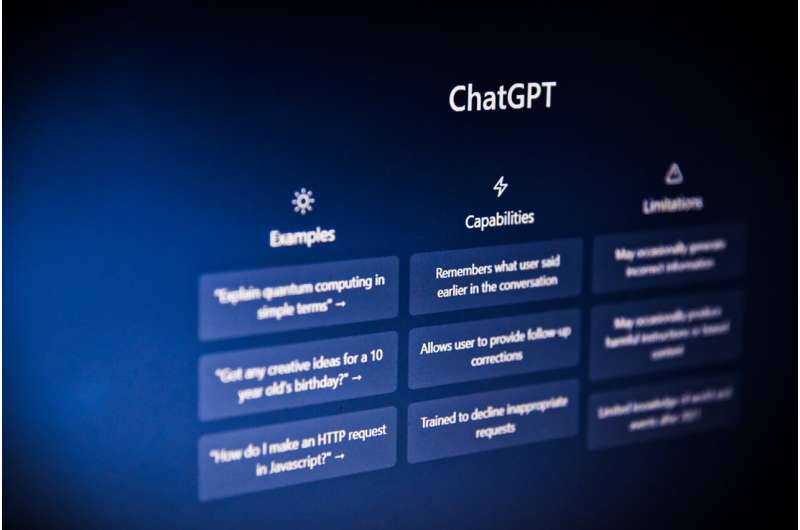Nearly half of white-collar professionals have tried using ChatGPT to help with their work, according to a recent survey of more than 10,000 people at blue chips such as Google, JP Morgan and McKinsey. That's staggering, considering the AI chatbot was only released to the public in November. It's potentially very exciting for the future of work, but it also brings serious risks.
Worker-friendly AI?
One way of dealing with the dangers of heavier workloads is through regulation. At this stage, however we worry that the authorities will set more of an aspirational "ceiling" for what employers should aim to do for employees rather than a clearly regulated and enforced "floor" for ensuring decent work.
We must start developing basic standards to limit the potential for exploiting workers. This could include caps on the amount of AI-assisted written work that companies can expect of individuals, for instance. There's clearly also an important role for raising employers' awareness about the potential harms and benefits from these technologies.
It's also important to recognize that the dangers are being aggravated by companies' focus on maximizing profits and productivity. This points to the need for more alternative work environments where the emphasis is on providing workers with a good quality of life. The OECD has for instance been promoting the "social economy," which encompasses worker and community-owned cooperatives. In such workplaces, tools such as ChatGPT have the potential to be more beneficial than threatening.
The good news is that there is probably a narrow window before these technologies transform workplaces. We tried using ChatGPT to write this article and didn't find it particularly useful—though that may partly reflect our own inexperience at prompting the chatbot. Now is the time to recognize where this is heading and get the world up to speed. A year or two from now, workplaces could look very different.
This article is republished from The Conversation under a Creative Commons license. Read the original article.
Citation: ChatGPT: How to prevent it becoming a nightmare for professional writers (2023, March 1) retrieved 2 March 2023 from https://techxplore.com/news/2023-03-chatgpt-nightmare-professional-writers.html
This document is subject to copyright. Apart from any fair dealing for the purpose of private study or research, no part may be reproduced without the written permission. The content is provided for information purposes only.










 User Center
User Center My Training Class
My Training Class Feedback
Feedback












Comments
Something to say?
Log in or Sign up for free